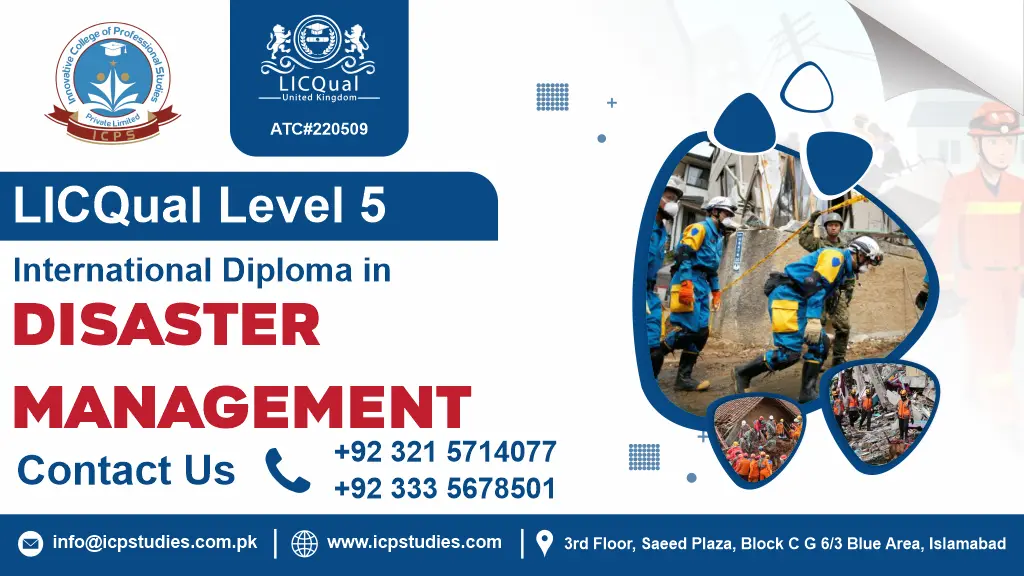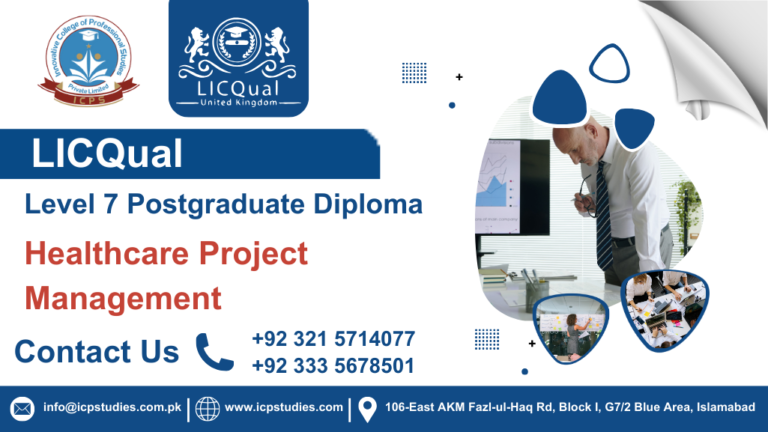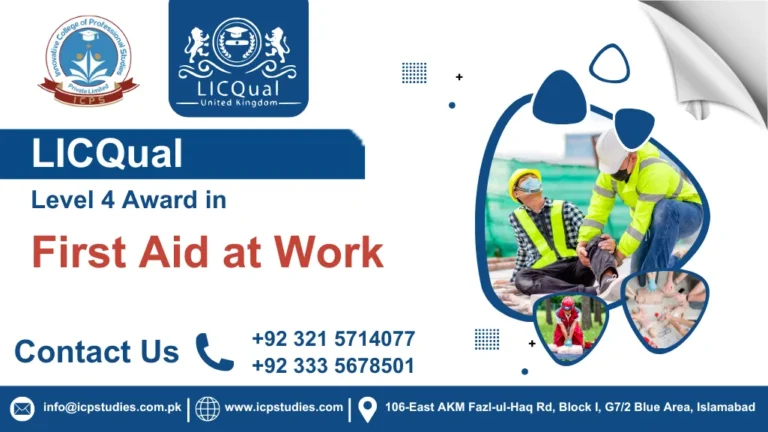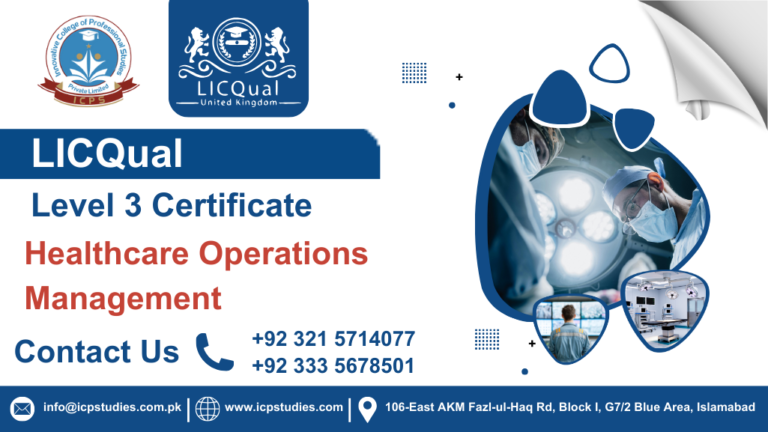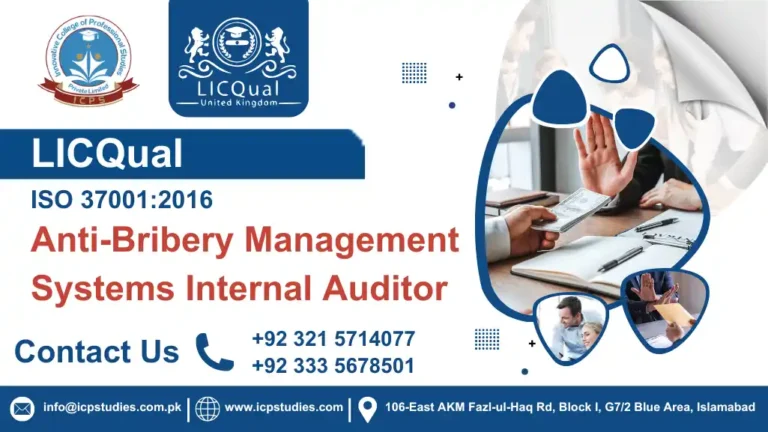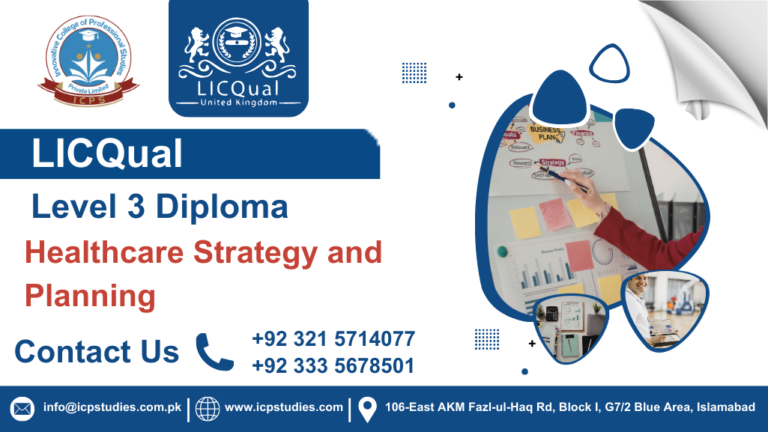Our diploma program offers a comprehensive curriculum that covers all aspects of disaster management, from risk assessment and mitigation to emergency response and recovery strategies. You’ll delve into advanced topics such as crisis leadership, complex emergencies, disaster risk reduction, and humanitarian logistics, ensuring you have a deep understanding of the field.
In an increasingly interconnected world, disasters know no borders. Our diploma program provides a global perspective on disaster management, examining case studies and best practices from around the world. You’ll learn how to navigate the complexities of international disaster response and collaborate effectively with diverse stakeholders, including governments, NGOs, and international organizations.
Learn from industry experts and seasoned professionals who bring their firsthand experience to the classroom. Our faculty members are leaders in the field of disaster management, with years of experience working on the frontlines of emergencies and disasters around the globe. Benefit from their insights, guidance, and mentorship as you advance your career in disaster management.
Don’t miss out on this opportunity to elevate your career and make a real impact in disaster management.. Enroll now in the Level 5 International Diploma today and gain the knowledge, skills, and confidence to lead and innovate in the ever-evolving field of disaster management. Together, we can build a safer, more resilient future for communities around the world.
All About Level 5 International Diploma in Disaster Management
Course Overview
The LICQUAL Level 5 International Diploma in Disaster Management is an advanced educational program designed to provide participants with in-depth knowledge, practical skills, and strategic insights necessary to excel in the field of disaster management at an international level. This diploma course builds upon foundational concepts covered in lower-level qualifications and delves into more complex issues, challenges, and strategies relevant to disaster preparedness, response, recovery, and resilience-building efforts worldwide.
Participants will explore advanced concepts and theories in disaster management, including but not limited to complex emergencies, climate change adaptation, conflict-related disasters, and urban resilience. They will gain a deeper understanding of the interconnected nature of disasters and their socio-economic, environmental, and political dimensions.
The course emphasizes the development of leadership skills essential for effectively managing crises and leading multidisciplinary teams in dynamic and high-pressure environments. Participants will learn strategic planning techniques, decision-making processes, and crisis communication strategies to guide effective disaster response and recovery efforts.
The LICQUAL Level 5 International Diploma in Disaster Management equips participants with advanced knowledge, skills, and capabilities to lead and innovate in the field of disaster management, contributing to more effective, sustainable, and resilient responses to disasters and emergencies on a global scale. Whether you’re an experienced professional seeking to enhance your expertise or a newcomer looking to make a difference, this diploma course provides a solid foundation for advancing your career and making a positive impact in disaster-affected communities worldwide.
Study Units
Learning Outcomes
Certainly! Here are the expected outcomes for each study unit:
- Disaster Management – Theory and Application:
- Understand the fundamental theories, principles, and frameworks of disaster management.
- Apply theoretical knowledge to real-world scenarios and case studies, analyzing past disasters and identifying lessons learned.
- Develop practical skills in disaster risk assessment, mitigation, preparedness, response, and recovery strategies.
- Disaster, Crisis, and Emergency Preparedness Communication:
- Gain expertise in effective communication strategies for disaster, crisis, and emergency preparedness.
- Develop skills in crisis communication planning, message development, dissemination, and public engagement.
- Understand the importance of clear, timely, and accurate communication in mitigating disaster impacts and promoting community resilience.
- Risk Perception Awareness in Disaster Management:
- Explore the psychological and sociocultural factors influencing risk perception in disaster-prone communities.
- Understand how risk perception shapes individual and collective behaviors related to disaster preparedness, response, and recovery.
- Develop strategies for increasing risk awareness and promoting proactive risk reduction measures in diverse cultural contexts.
- Gender-inclusive Disaster Management: A Non-discriminatory Approach:
- Recognize the gender-specific vulnerabilities and needs of diverse populations in disaster situations.
- Learn how to integrate gender perspectives into all phases of disaster management, ensuring inclusivity and non-discrimination in policies and practices.
- Develop strategies for addressing gender-based violence, promoting women’s empowerment, and engaging marginalized groups in disaster risk reduction and response efforts.
- Foundations of Research:
- Acquire foundational knowledge and skills in research methods, design, and analysis relevant to disaster management.
- Learn how to critically evaluate existing research literature, identify research gaps, and formulate research questions.
- Develop proficiency in conducting ethical and rigorous research studies to advance knowledge and practice in the field of disaster management.
- Sustainable Disaster Recovery: Operationalizing an Existing Agenda:
- Understand the principles of sustainable development and their application to disaster recovery and reconstruction processes.
- Learn how to operationalize sustainable development goals (SDGs) and principles in post-disaster recovery planning and implementation.
- Develop strategies for integrating environmental, social, and economic sustainability into disaster recovery projects, fostering long-term resilience and well-being in disaster-affected communities.
These outcomes collectively provide participants with a comprehensive understanding of key concepts, principles, and practices in disaster management, equipping them with the knowledge and skills needed to address the multifaceted challenges of disaster preparedness, response, recovery, and resilience-building in diverse contexts.
Admission Criteria
Here are the typical entry requirements for the course:
- Educational Background:
- Applicants are typically required to have a minimum of a high school diploma or equivalent qualification.
- Some institutions may prefer applicants with a bachelor’s degree or higher in fields such as emergency management, disaster studies, public health, social sciences, environmental science, or related disciplines.
- Language Proficiency:
- Proficiency in the language of instruction (often English) is usually required. This may be demonstrated through standardized tests such as the TOEFL or IELTS for non-native English speakers.
- Language proficiency requirements may vary depending on the institution offering the course.
- Work Experience:
- While not always mandatory, some institutions may prefer applicants with relevant work experience in fields such as emergency management, disaster response, public health, humanitarian aid, or related areas.
- Work experience requirements, if any, may vary depending on the institution and the level of the course.
- Prerequisites or Preparatory Courses:
- Depending on the institution and the specific curriculum of the course, applicants may be required to complete certain prerequisite courses or preparatory modules to ensure they have foundational knowledge in relevant areas such as disaster management concepts, emergency response protocols, or research methods.
- Prerequisite requirements may vary, so applicants should carefully review the course prerequisites specified by the institution.
- References or Recommendations:
- Some institutions may require letters of recommendation or references from academic or professional sources attesting to the applicant’s qualifications, skills, and suitability for the course.
- Letters of recommendation should ideally come from individuals who can speak to the applicant’s academic abilities, work ethic, and potential for success in the field of disaster management.
- Interview or Statement of Purpose:
- Applicants may be required to participate in an interview or submit a statement of purpose outlining their motivation for pursuing the course, relevant experiences, career goals, and how they expect the course to contribute to their professional development.
- The interview or statement of purpose helps admissions committees assess applicants’ suitability for the course and their commitment to the field of disaster management.
These entry requirements serve to ensure that participants have the necessary background, skills, and motivation to successfully complete the course and contribute meaningfully to the field of disaster management. Prospective applicants should carefully review the specific requirements outlined by the institution offering the course and prepare their application accordingly.
Ideal Candidate
The Level 5 International Diploma in Disaster Management is tailored for a diverse range of individuals who are passionate about addressing the challenges posed by disasters and emergencies on a global scale. This course is particularly beneficial for:
- Emergency Management Professionals: Experienced professionals already working in emergency management, disaster response, or related fields who seek to enhance their knowledge, skills, and leadership capabilities to effectively manage complex disaster scenarios.
- Government Officials and Policymakers: Individuals working in government agencies, ministries, or local authorities responsible for disaster risk reduction, preparedness planning, and emergency response coordination who wish to deepen their understanding of best practices and international frameworks.
- Humanitarian Aid Workers: Professionals involved in humanitarian organizations, NGOs, or international aid agencies engaged in disaster response, relief operations, and long-term recovery efforts who want to enhance their effectiveness in delivering assistance to affected populations.
- Public Health and Healthcare Professionals: Healthcare workers, public health officials, and medical professionals interested in disaster medicine, emergency healthcare management, and public health emergency preparedness and response.
- Community Leaders and Activists: Community leaders, activists, and volunteers engaged in grassroots initiatives, community-based organizations, or civil society groups interested in building resilience, promoting inclusivity, and advocating for vulnerable populations in disaster-prone areas.
- Academics and Researchers: Scholars, researchers, and academics studying fields such as disaster studies, emergency management, public policy, sociology, environmental science, or international development who wish to deepen their theoretical understanding and contribute to knowledge generation in the field.
- Students and Recent Graduates: Undergraduate and graduate students seeking to pursue a career in disaster management, emergency preparedness, or humanitarian aid who wish to gain practical skills, industry insights, and networking opportunities to jumpstart their careers.
- Military and First Responders: Military personnel, law enforcement officers, firefighters, paramedics, and other first responders involved in disaster response and emergency services who want to broaden their expertise beyond operational skills and understand the broader context of disaster management.
- Geospatial and Technology Experts: Professionals with expertise in geospatial sciences, geographic information systems (GIS), remote sensing, or data analytics interested in applying their technical skills to disaster risk assessment, mapping, and decision support systems in disaster management contexts.
In essence, this course caters to individuals from various backgrounds and professions who share a common goal of enhancing disaster preparedness, response, recovery, and resilience-building efforts to safeguard lives, protect communities, and promote sustainable development in the face of adversity. Whether you’re a seasoned professional seeking to advance your career or a newcomer looking to make a difference, this course provides valuable knowledge, skills, and opportunities for personal and professional growth in the field of disaster management.
FAQs for Level 5 International Diploma in Disaster Management

